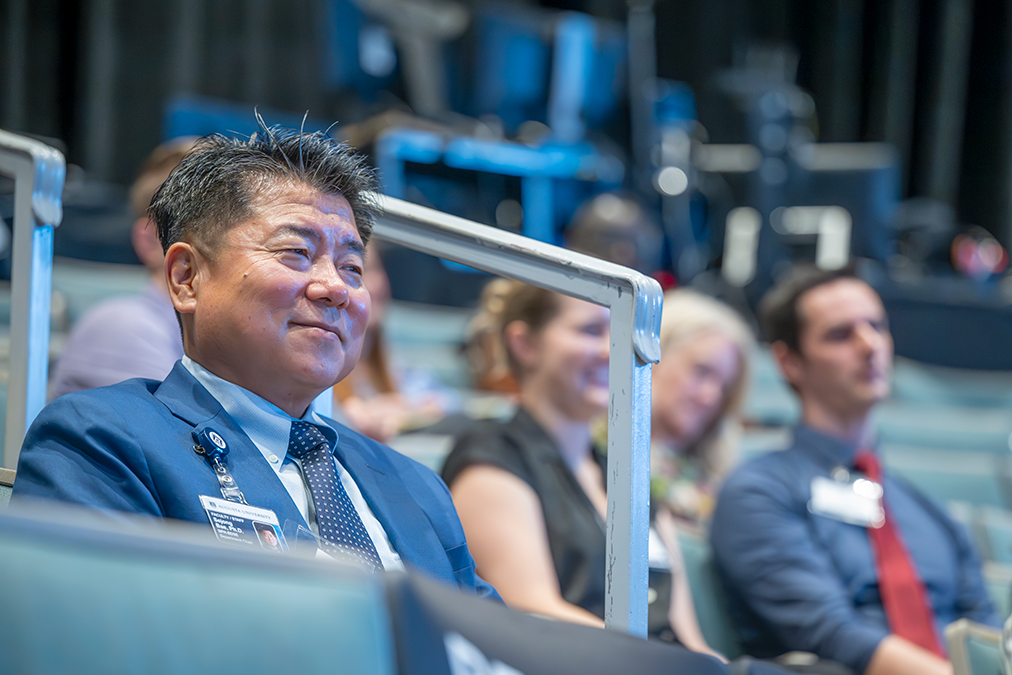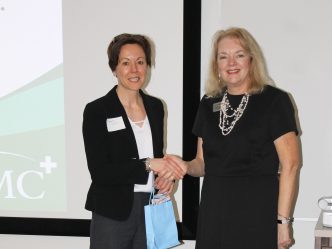When fall classes started Aug. 11, first-year students weren’t the only ones learning the ropes of their new institution. More than 100 faculty were either beginning their careers in higher education or were new to Augusta University. Much like their students, these new instructors are adjusting to campus life, learning systems and procedures and preparing to make their mark in the classroom.
This influx of new educators highlights AU’s substantial growth over the last decade, with student enrollment projected to continue to grow for the 2025-26 academic year. As Augusta University President Russell T. Keen pointed out, it’s more than numbers; it’s a reflection of AU’s long-term priorities and strategic goals.
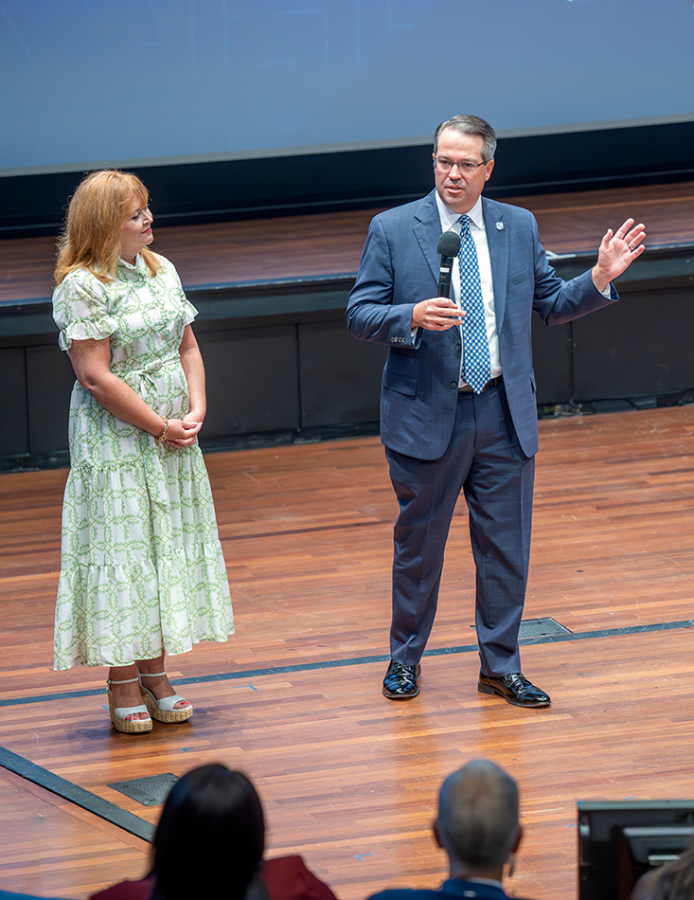
“We are excited to welcome a remarkable group of new faculty to Augusta University,” Keen said. “From the very beginning, we encourage them to make every interaction meaningful – with our students, their colleagues and the Augusta community they now call home – because that’s what makes Augusta University stand out. We look forward to the role they will serve in preparing our students for the next steps in their lives and in attracting the next generation of talented students and faculty to AU. It’s particularly special to see several of our alumni return as educators, giving back to the university that played a significant role in their development.”
Earlier in the month, the new faculty gathered at the Grover C. Maxwell Performing Arts Theatre on the Summerville Campus for a two-day dive into all things AU. Each year Associate Provost Karen Head, PhD, and the Office of Faculty Affairs go to great lengths to ensure the event is an engaging and resource-driven official welcome to the university. From policies to programs and best practices, the conference covers a wide range of topics to set faculty up for success.
“It serves as a critical and comprehensive introduction to Augusta University’s culture, values and commitment to academic excellence, preparing our new colleagues to make significant contributions to our students, our research enterprise and our broader community,” Head explained. “Our exceptional new faculty will play a vital role in advancing our life-changing and life-saving mission of transforming lives through education, research and health care.”
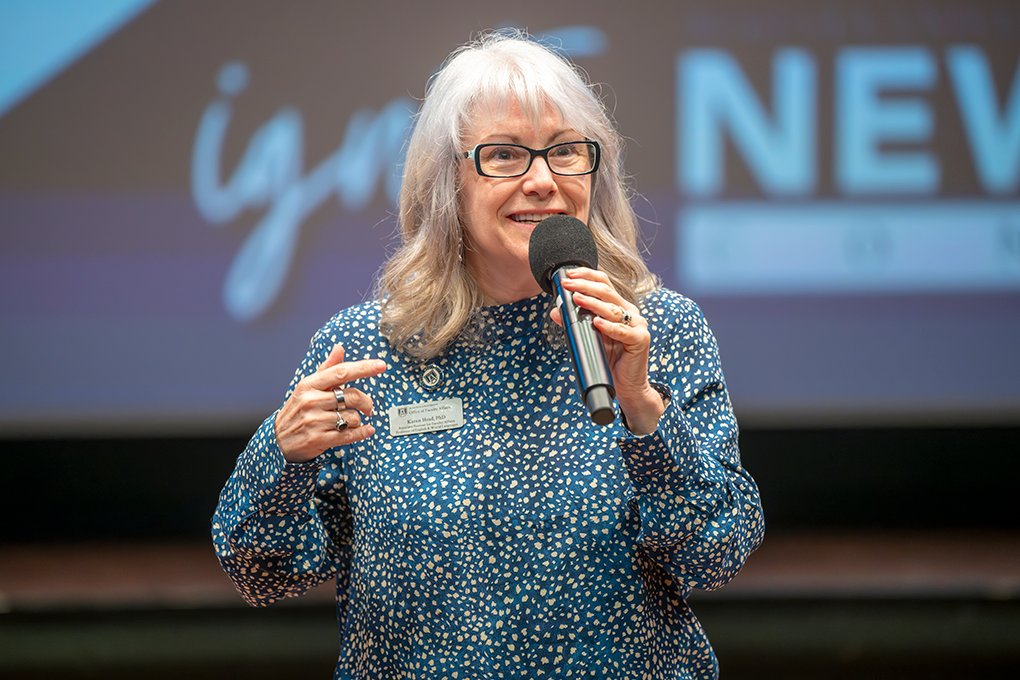
This year, 19 of the new faculty are alumni of Augusta University. Alumni make up more than 18 percent of all current faculty and staff.
“We are particularly excited that 19 of the new faculty attending the conference are proud alumni of Augusta University, representing a meaningful homecoming as they return to contribute their expertise and passion to the institution that helped shape their careers. This strong connection between our past and future underscores the lasting impact of our university and the continued excellence of our programs,” Head said.
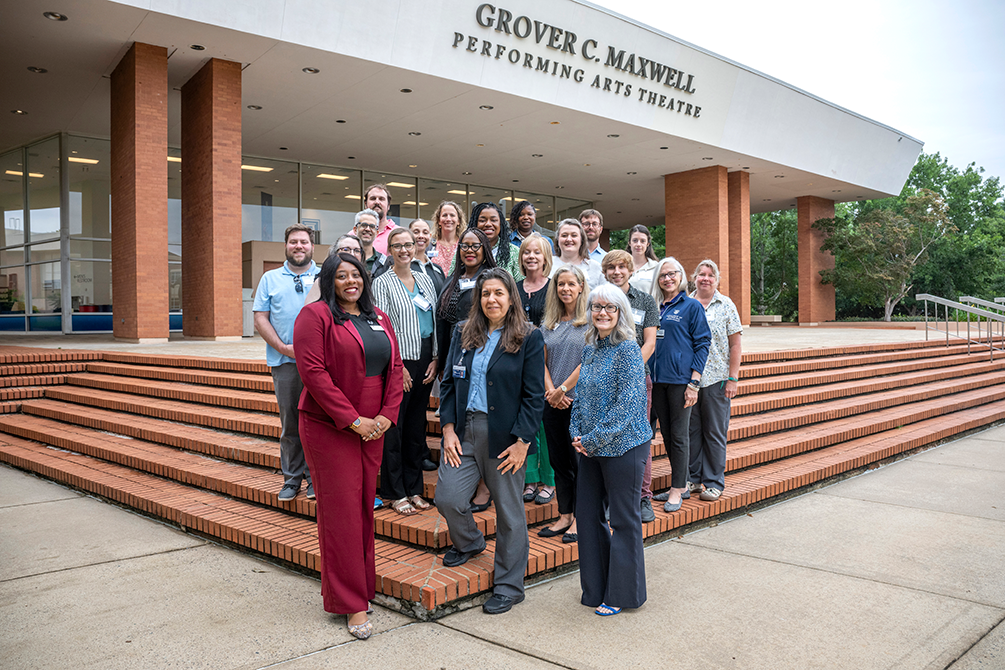
As new faculty members attended sessions, including student- and faculty-led panels, and mingled over coffee and croissants with new colleagues, they were able to connect with fellow educators, campus leaders and staff. The mix of social and structured programming provided a sense of community. In the process, they were able to file away resources for professional development, support and anything else they may need to thrive here.
AU Faculty Senate Chair Tiana Curry-McCoy, PhD, helped welcome her new colleagues to the AU family.
“We want new faculty to know they have a place where they are supported, cared for and nurtured. That attitude starts from the very top. It is our job as leaders to assist new faculty in this transition,” said Curry-McCoy, who is also council chair-elect for the University System of Georgia Faculty Council. “This might be their first step in their career in education or where they plan to retire from or anywhere in between. How we support them during their tenure at AU means something.”
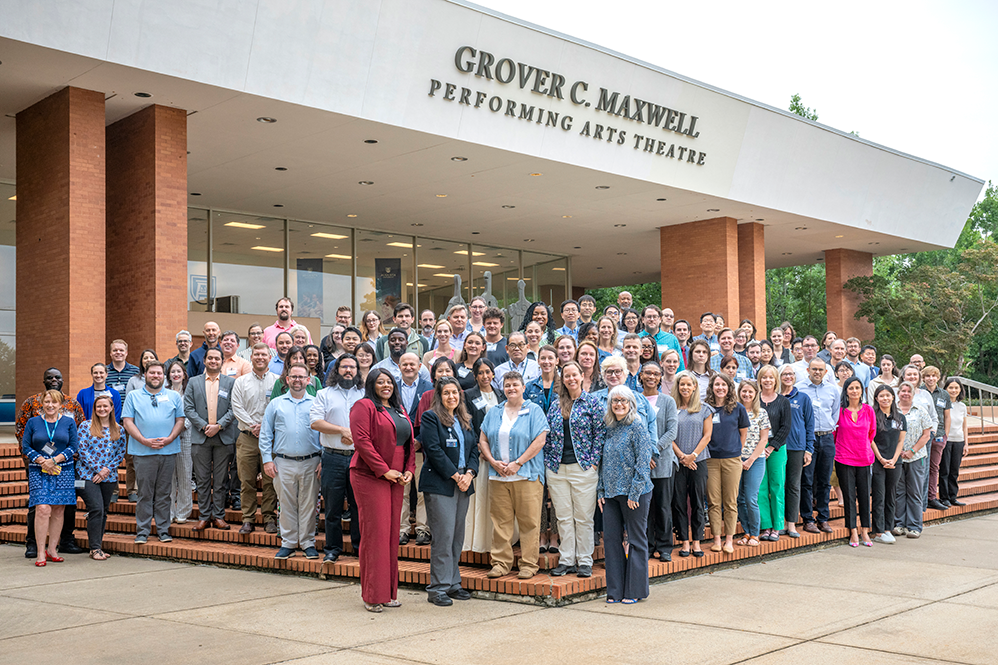
Curry-McCoy has been a professor at AU for more than a decade. This conference, she said, helps prepare faculty to tackle the rigors and ongoing changes in academia. There is a lot of critical information for the faculty to learn about policies, procedures, research and teaching – with the goal of creating a sound foundation from which to work.
As part of her presentation, Provost Maggy G. Tomova, PhD, had faculty members turn to the person sitting next to them and share an interesting fact to spark some interaction. She shared a bit about what attracted her to AU and gave a brief history of the university’s storied transformation over time. Though she has just a couple of months under her belt as provost, Tomova sees the value and touts the significance of the New Faculty Conference.
“It’s more than just an orientation — it’s the beginning of a journey and a community. We’re truly excited they’re here, and we look forward to all that we’ll accomplish together,” said Tomova. “At AU, we are deeply committed to faculty success, and a vital part of that commitment is ensuring that our new colleagues have access to the resources, information and support they need to thrive. Just as importantly, we want to foster meaningful connections — among faculty, administrators and staff — that we hope will flourish for many years to come.”
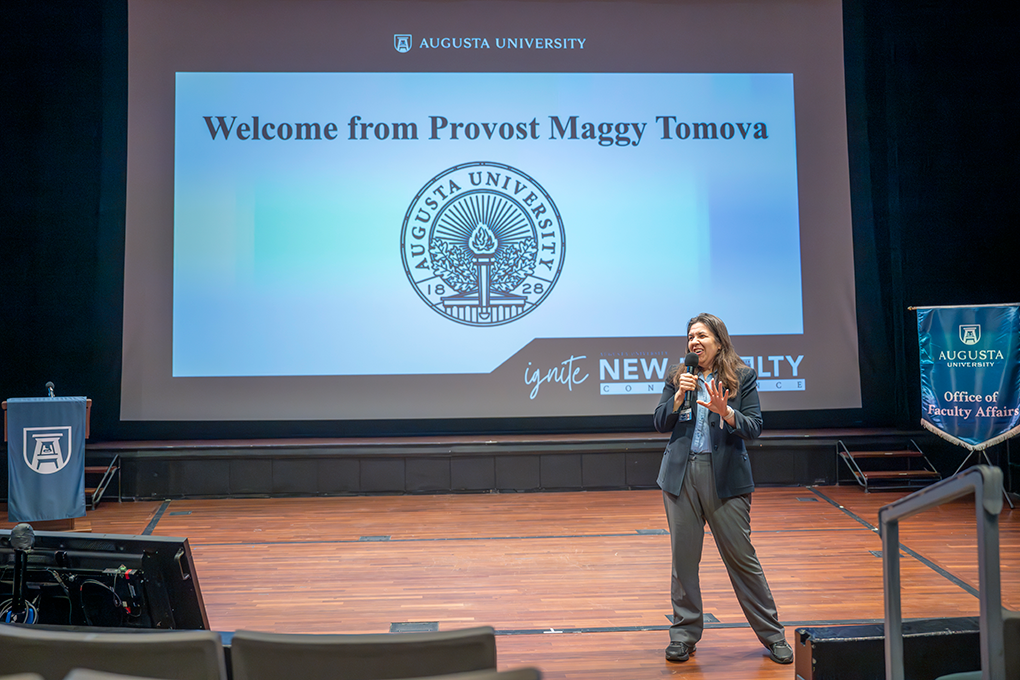
Kate Harris, PhD, moved to Augusta from Gainesville, Florida, to begin work as an assistant professor in the College of Education and Human Development. She said AU’s balance of research and teaching aligns with her professional goals, making it an easy choice. The New Faculty Conference’s “first-day-of-school” energy appealed to Harris, as both a teacher and lifelong student.
“It’s been really great, really helpful to learn all these things I need to know as I begin here. All of the people I came in contact with during the interview process were so lovely, and this has been a continuation of that,” said Harris.
Investing this time in faculty early in their tenure can pay off in dividends.
“Our faculty are our resource for advertisement, recruitment and retention of not only students but also other faculty and staff, as well. Beyond that, it is our duty to ensure that each faculty member has access to the essential information they need,” said Curry-McCoy. “If they do not know where to find it, they know they can ask any of us or their colleagues for help.”
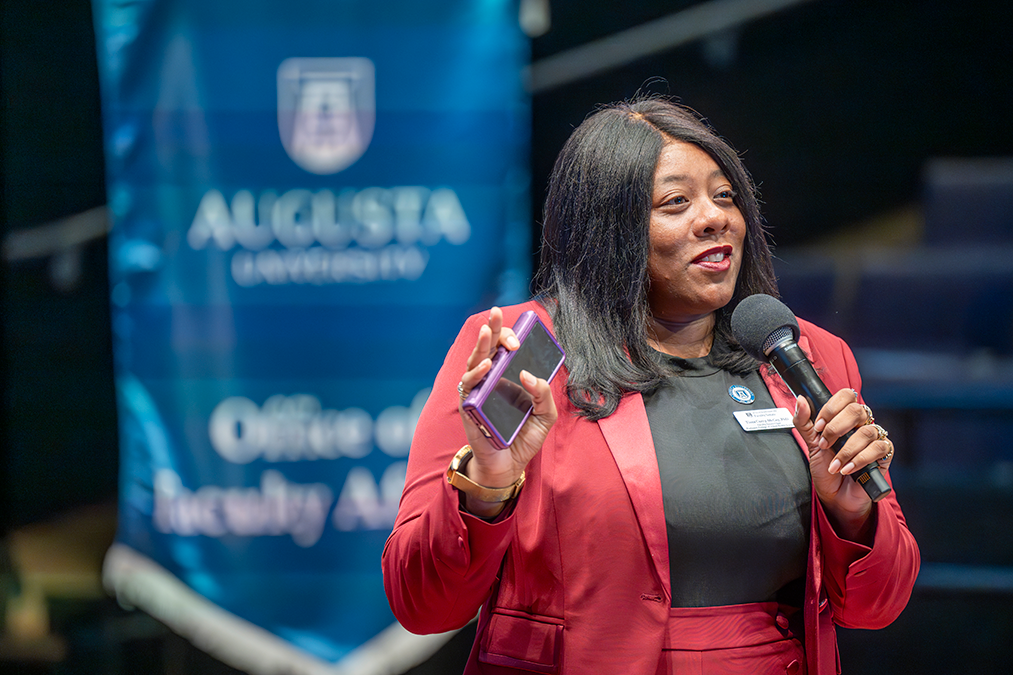
 Augusta University
Augusta University
